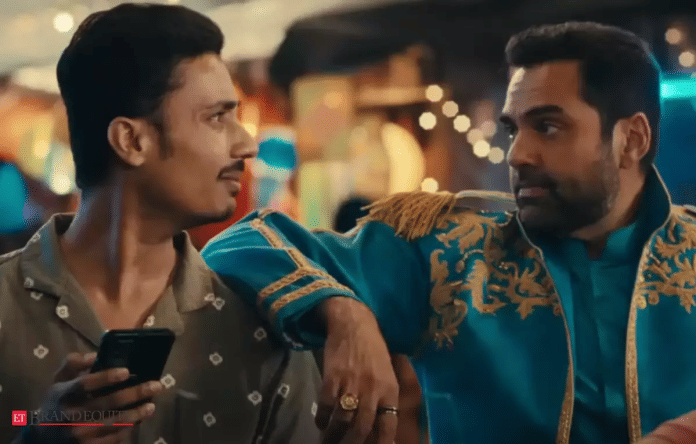Cybersecurity is taking centre stage in advertising as brands like Meta, Airtel, and WhatsApp recognise the pressing need to educate consumers about digital scams.
Brands are roping in actors, adding a dose of laughter to the serious conversation, giving a musical touch or at times keeping things simple and straightforward.
Airtel rolled out a TVC in September 2024, promoting its AI-powered network solution for spam detection.
A simple commercial, created by Fundamental, tackles the everyday challenges when encountered with spam calls and messages.
There is little to no creativity; the script is basic. Not much thought has been put into the cinematography and editing of the video. But the point is, it has played in favour of the brand.
Their AI-powered network service draws all the attention of the viewers. The brand has also become the first to use AI in tracking and blocking spammers. The commercial shows a woman receiving a phone call where the caller claims that she has won a lucky draw and should share her bank details to receive it.
Airtel then assures to block these spam calls and messages with their new AI-powered network and ensures to prioritise the safety of their consumers. The service is absolutely free for the telecom provider’s customer base.
Only time will tell whether or not Airtel has managed to crack ‘spam’ or not.
Prime Minister Narendra Modi, too, highlighted the threat of online scams during his Mann ki Baat radio address on 27 October. Notably, the number of cybercrime complaints has shot up from 26,049 in 2019 to 7,40,957 in the first four months of 2024 alone.
The Indian Cyber Crime Coordination Centre (I4C) in a 2024 report released pegged the losses from digital financial frauds at around a massive Rs 1.25 lakh crore over the last three years.
Also read: Sunfeast Mom’s Magic ad boldly takes on India’s inheritance bias. It seems forced, cliched
A dose of fun
Adding humour to serious conversations in commercials can break down walls, making tough topics more approachable.
Meta partnered with actor Ayushmann Khurrana for its safety campaign ‘Scams se Bacho’, while its subsidiary WhatsApp jammed with Abhay Deol to promote awareness against scammers.
WhatsApp launched a music video as part of its privacy campaign introduced in July. Earlier, the Meta-owned brand delivered only long and boring commercials.
The new song, featuring Deol, is a reimagined version of the classic track Oye Lucky Lucky Oye and aims to educate users on how to protect themselves from scams on the platform.
The campaign, created in collaboration with BBDO India, uses nostalgia to highlight the importance of scam awareness and the utilisation of WhatsApp’s privacy features and safety tools.
The tune is catchy and engaging. Deol’s dance moves make you laugh while the lyrics — in perfect sync with the original track — just hit the mark.
WhatsApp’s privacy commercials previously struggled to seamlessly incorporate the application’s security features. But, this time around, things fell into place for the brand. So much so that it outshined the Scams Se Bacho campaign, launched in collaboration with the Ministry of Electronics and Information Technology (MeitY), Indian Cyber Crime Coordination Centre (4C), and Ministry of Information and Broadcasting.
Khurrana is seen interacting with multiple members of a family at a wedding and creating awareness around the types of scams.
The message itself wasn’t groundbreaking. But dressing up a familiar idea with fresh packaging is often a smart marketing move.
Here, instead of focusing on creativity (like WhatsApp) or new features (like Airtel), the brand leaned heavily on glamour to sell the story.
Unfortunately, this approach fell flat, especially against the competition.
Even Khurrana’s charm failed in front of Deol’s Oye Lucky, Lucky Oye comeback.
The audience extended support to both the commercials, but there was a difference. While ‘thank you Meta’ comments flooded the comment section of Khurrana’s video, the public called Deol’s antic “entertainment, entertainment and entertainment.”
Hence, there is a clear winner.
Brand: WhatsApp
Agency: BBDO India






